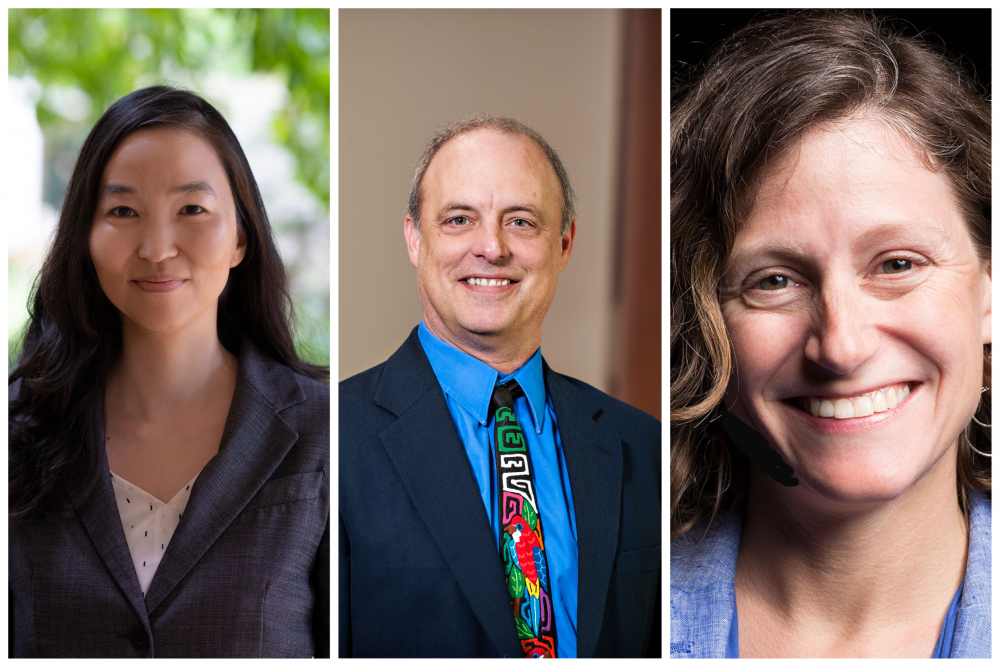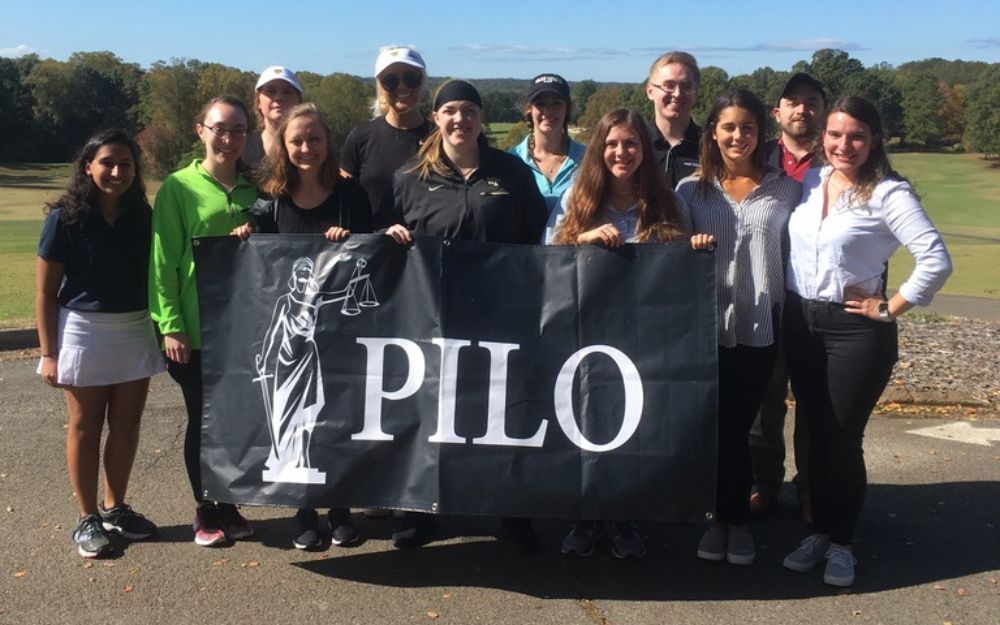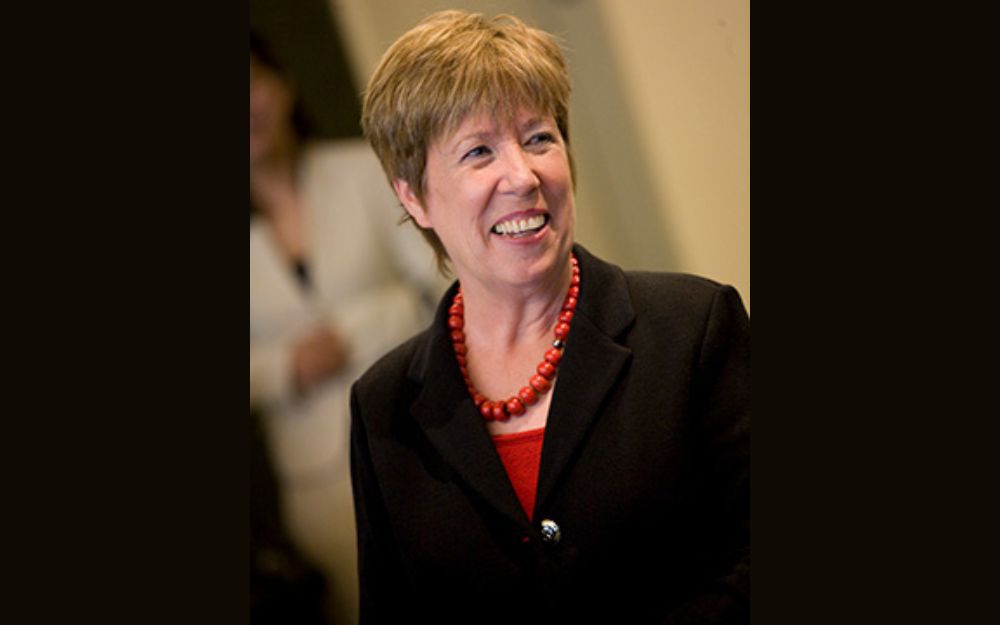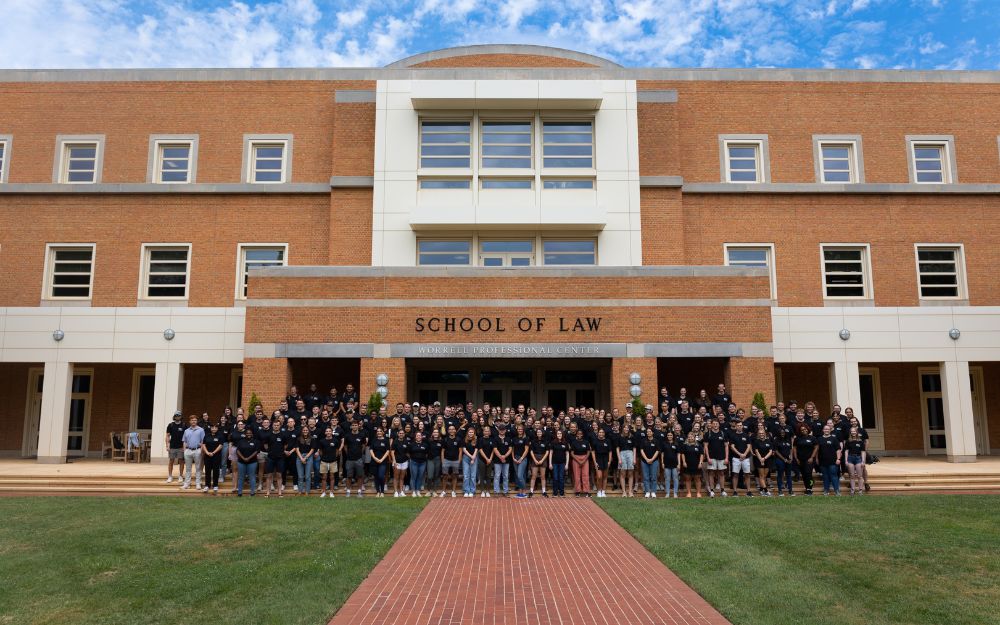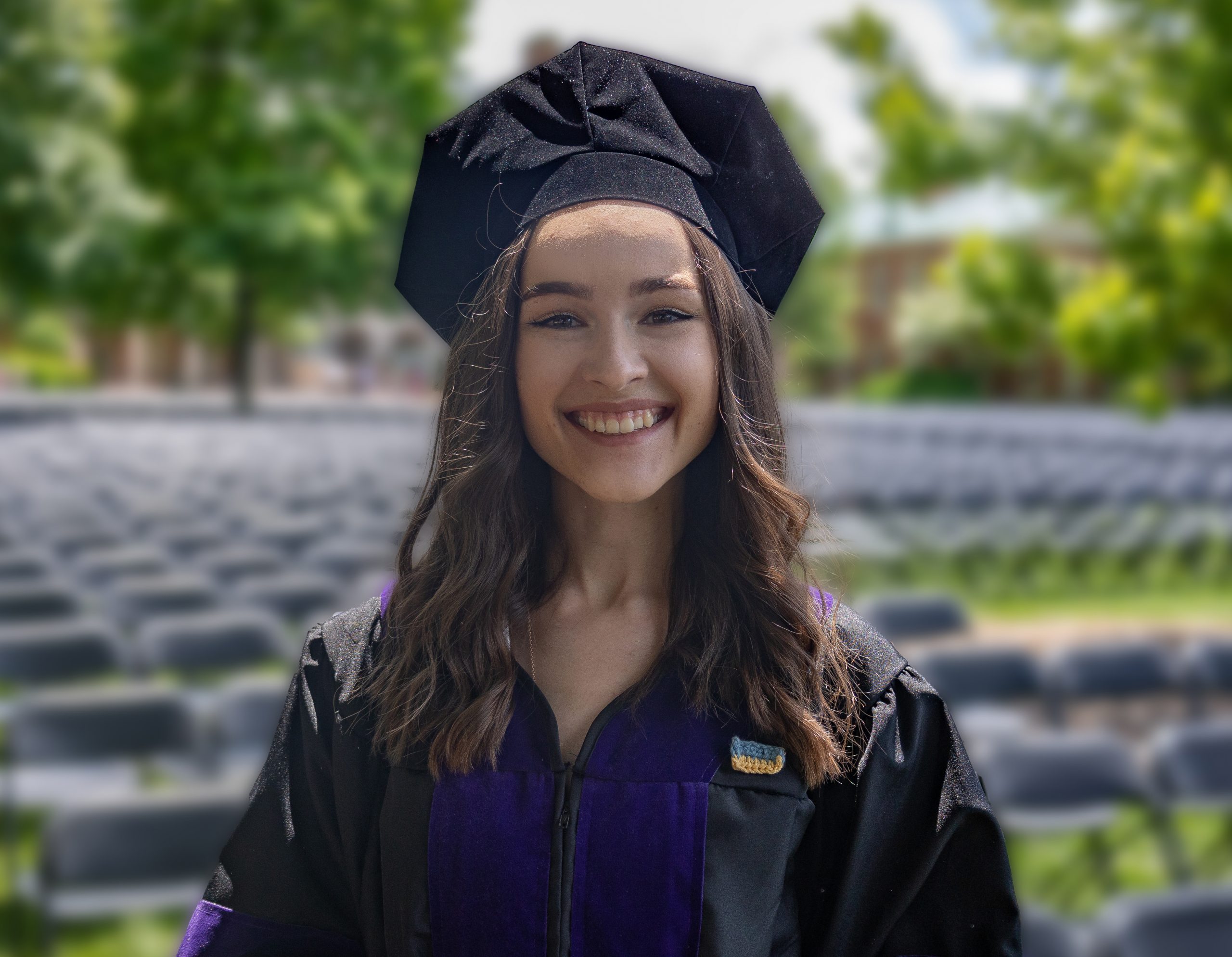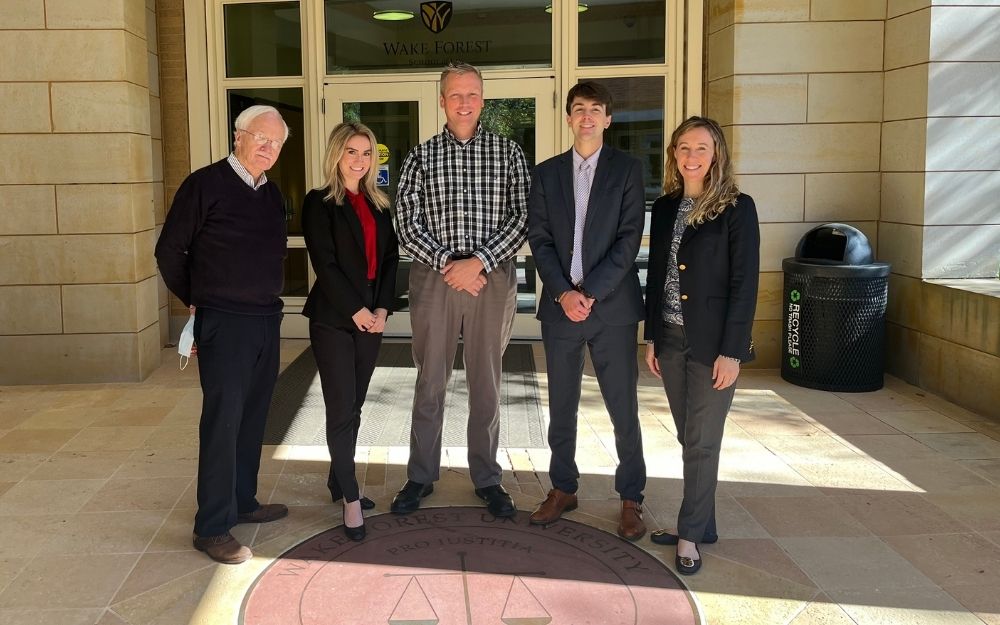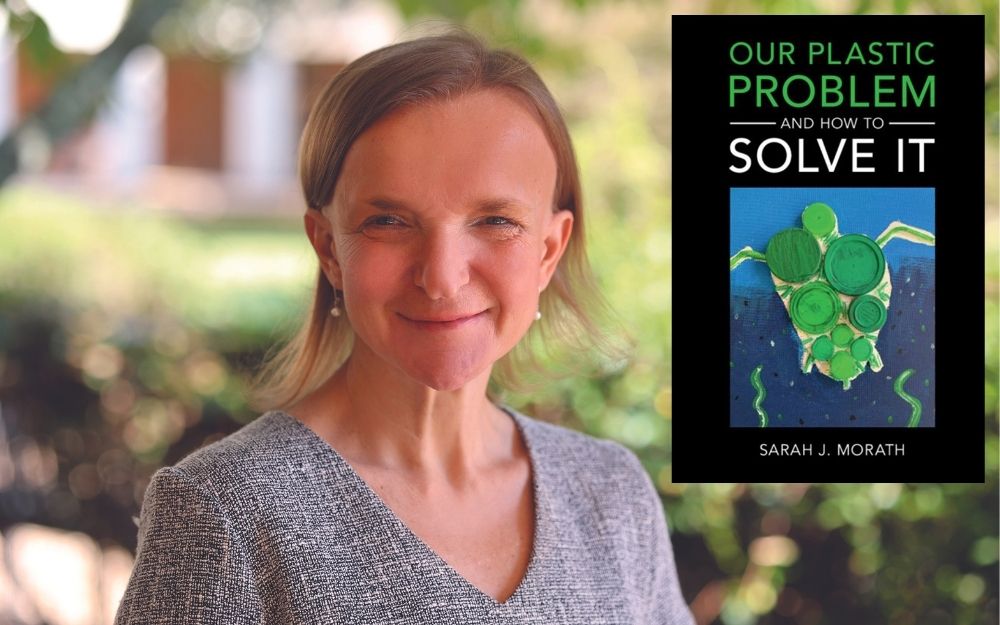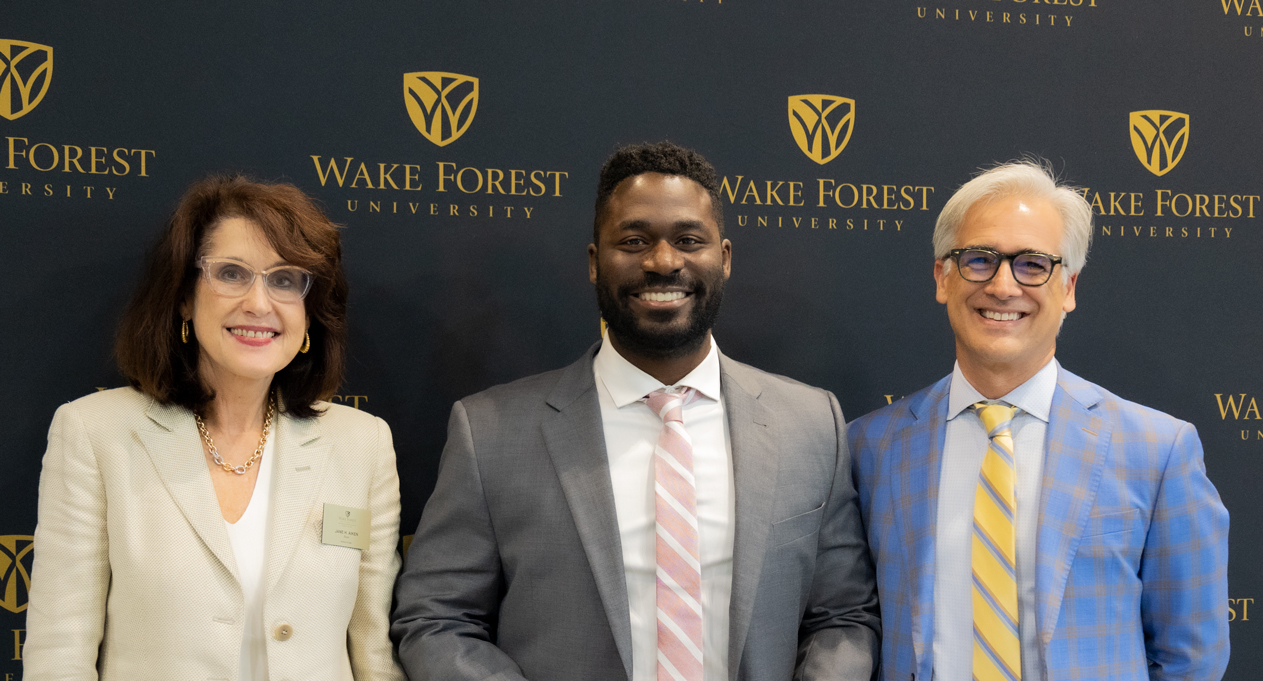
Beloved Former Faculty Member Butch Covington Named Professor Emeritus
Posted: April 17th, 2023
When you hear the name Butch Covington around the Law School, you can bet it will be followed by a superlative of the highest order. In 1979, just two years after he joined the faculty at Wake Forest Law to teach contracts, the Jurist wrote about him: “His exuberant style and fresh approach to his material have led him to be accused of having ‘an evangelical approach to the UCC.’” Professor Covington, who taught at Wake Forest Law for 25 years, was beloved by students and faculty alike, and developed close relationships with many people in the Law School community. Although he was not officially conferred the title of Professor Emeritus at the time of his retirement in 2003, thanks to Professors Steve Nickles and Ellen Murphy (JD ’02), and alumnus and Law Board of Visitors Member, Charlie Trefzger, this oversight was remedied this past March.
On Wednesday, March 29, 2023, Professor Covington and his wife Marie walked into the Forsyth Country Club for dinner. Little did Professor Covington know that he would be greeted by a room of people who were there to celebrate his legacy at Wake Forest Law and honor him with the title of Professor Emeritus. In attendance at the event were Professors Steve Nickles and Ellen Murphy (longtime friends of Professor Covington and Marie), Interim Dean Nell Newton, former Dean of the Law School Bob Walsh and his wife Kathy, Law Board of Visitors member and past chair Charlie Trefzger (JD ’84, P ’10, P ’12), Professor Eleanor Morales (JD ’10) and her husband Francisco Morales (JD ’11) and Associate Director of Development Web Alexander (’88) and his wife Beth Alexander. “He didn’t know he was being honored with emeritus status at that dinner,” said Charlie Trefzger. “He was completely surprised.”
During his tenure at Wake Forest Law, Professor Covington was voted teacher of the year six times by the third-year class (a record), he served as the faculty advisor to BLSA for 16 years, and he was known for his engaging, insightful classes. “Butch ascribed to the ‘three strikes and he’s out’ rule,” said Charlie. “If he called on three people and all three were unprepared for class, he would walk out. He expected a high level of commitment and performance from his students—which he reciprocated in spades.”
In fact, his dedication to his students was so inspiring that Charlie, Professor Covington’s former student and dear friend, even established the I. Boyce Covington Law Scholarship in 2006, to honor Butch and to provide financial assistance to law students based on merit and need. “I wanted to give back to the law school that helped me become what I am today,” said Charlie. “And Butch invested in me in such a significant way that it only felt fitting to name the scholarship in his honor.”
At the dinner, guests spent the evening reminiscing about Professor Covington’s time at Wake Forest Law, telling stories about his BarBri work, and catching up on his retirement. The night ended with Interim Dean Newton presenting Professor Covington with an official document from the Provost’s Office naming him Professor Emeritus, nunc pro tunc—indicating that the honor was always there, but now it was officially recognized. Indeed, Professor Covington’s legacy as a revered and cherished member of the faculty and of the community has persisted in the 20 years since he last stood at the front of a classroom at the Law School.
In a 2002 issue of the Jurist, Professor Emeritus Ralph Peeples wrote about Professor Covington and his teaching, “It was the fact that he cared about what he was doing, and that he cared about the students he was teaching. The students knew that. They could tell by the way he would call them each by first and last name, without the benefit of seating charts. They could tell by his smile, or by the tone of his voice. If they required further proof, they could learn that Butch Covington could go through their class roster and tell you something different and unique about each one of them. It’s hard to fake sincerity, and it’s hard to fake affection. Butch Covington has never needed to, in all his years of teaching. It has always come naturally.”
Without teachers like Butch Covington, who devoted so much of his time and energy to his students, Wake Forest Law would not be what it is today.
Donate to the I. Boyce Covington Law Scholarship via this form or by mail to Law School Development, Wake Forest University, P.O. Box 7227, Winston-Salem, NC, 27109.






